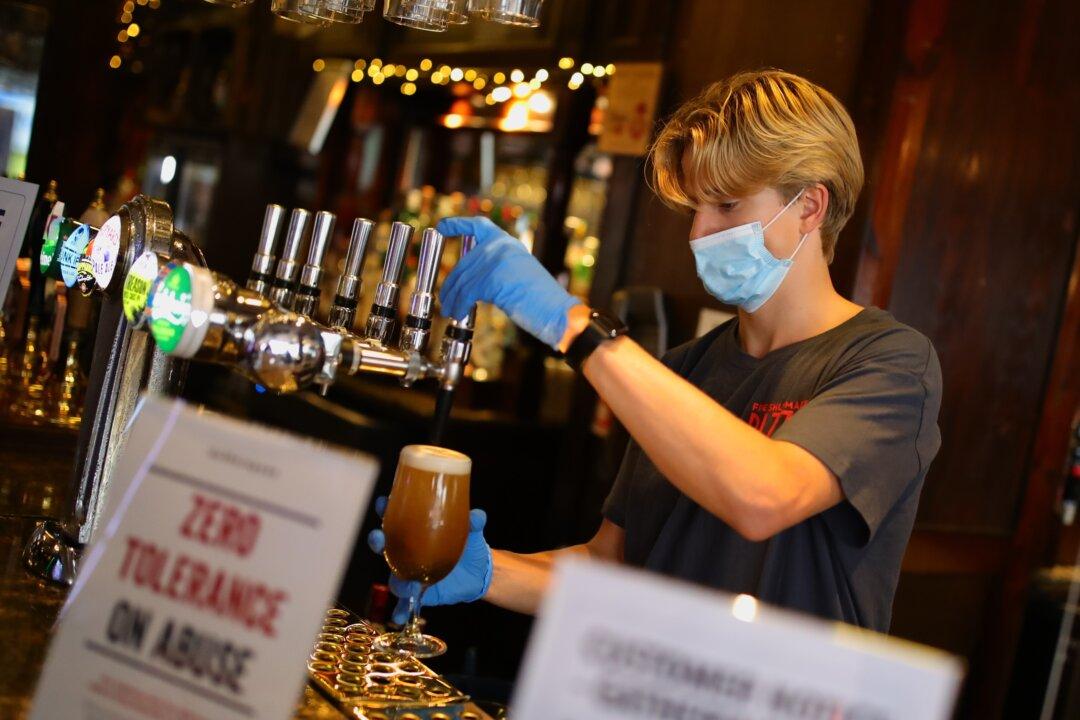Wages have been rising at a record speed according to official data, fuelling fears that inflation could remain at a high level and force the Bank of England (BoE) to raise interest rates further.
New data released by the Office for National Statistics (ONS) on Tuesday shows that employees’ regular pay, not including bonuses, was 7.3 percent higher in March to May 2023 than during the same period a year earlier.





